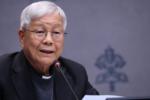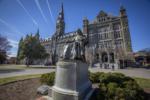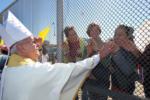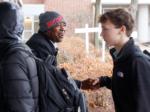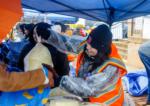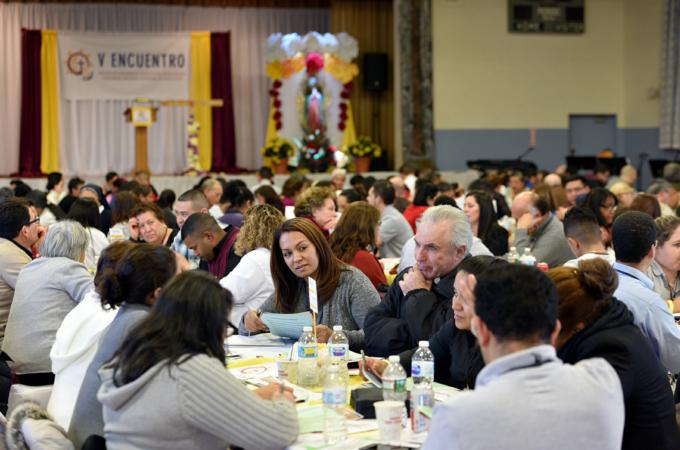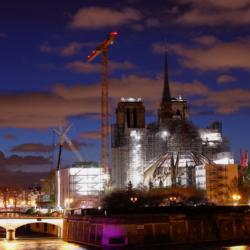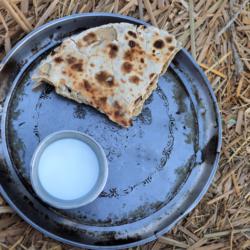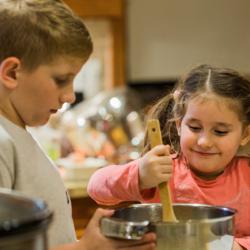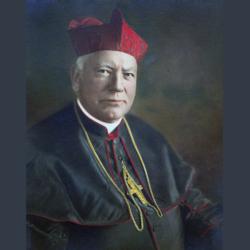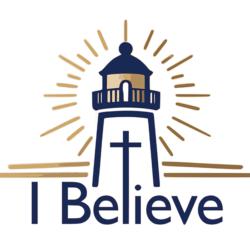Gathering marks next step towards National Encuentro
FRAMINGHAM -- Representatives from dozens of Hispanic parish communities from across the Archdiocese of Boston came together in discussion and prayer at St. Stephen Church in Framingham, Feb. 3, for the archdiocesan Encuentro.
A U.S. Conference of Catholic Bishops initiative, the Encuentro (Spanish for "Encounter") is a two-year process that aims to promote evangelization, leadership development, and consultation in Hispanic communities across the country. Parish, diocesan, and regional Encuentros are held before culminating in a National Encuentro.
The first National Encuentro was held in 1972, and served as a way to take into account the needs and contributions of Hispanic Catholics throughout the U.S. Since that time, the event has taken place sporadically, with the last one, the IV Encuentro, taking place in 2000.
The V National Encuentro, to be held in September 2018, will focus again on addressing the pastoral needs of the Hispanic Catholic communities, one of the largest Catholic communities in the country and in Boston, as well as encourage communities to evangelize.
Participating parishes in the Archdiocese of Boston held their own Encuentros months ago, as individual parish groups met to plan missionary activity, evangelize with the community, and evaluated how their parish, as well as the larger Church, could better serve their needs. The results were detailed in reports later given to pastors and the archdiocese's Hispanic Apostolate.
Currently, the reports are being compiled by the apostolate, which will present a summary to Cardinal Seán P. O'Malley. The cardinal will share the summary with representatives from the Catholic Church in the New England states during the regional Encuentro on March 10 at The National Shrine of Our Lady of La Salette in Attleboro.
The information gathered there will ultimately be relayed during the National Encuentro in September.
Falling in the middle of that process, the Feb. 3 archdiocesan Encuentro at St. Stephen Church marked the end of the parish Encuentros, and looked forward to the next steps.
It was a community building experience, Sister Elsa Narvaez-Rodriguezm, HMSP, the archdiocese's evangelization consultant for Hispanic communities, explained to The Pilot, Feb. 5.
Recounting the event, she said around 300 people, representing 30 of the 36 parishes that hold Spanish Masses in the archdiocese, attended the Encuentro gathering, which lasted about 10 hours and was held entirely in Spanish. Representatives from the archdiocese were also present at the event.
A large part of that time was given to prayer, as well as guided small group discussions, during which representatives of different parishes were able to share their parish Encuentro experiences and brainstorm ways the Church can better serve their communities. Sister Elsa said a number of suggestions mentioned training for parents who wish to know how to better raise their children in the faith.
The program also included a keynote talk on discipleship and mission that was given by Dr. Hoffsman Ospino, assistant professor of Hispanic Ministry and Religious Education at Boston College, and testimonies by "emerging leaders," parishioners who took a leading role in the evangelization and mission efforts during the parish Encuentros, on how the process helped guide them in their faith.
Father Dan Hennessy, director of the archdiocese's Vocation Office, and Father Carlos D. Suarez, assistant vocation director for Hispanic Ministries, also gave talks, and encouraged those interested to reflect on a vocation to the priesthood or religious life.
Cardinal O'Malley celebrated an evening Mass to close out the event.
According to Sister Elsa, in his homily the cardinal noted the "growing Hispanic community" within the Archdiocese of Boston and throughout the country, a community that is "vibrant in the Church."
He spoke about his love of immigrants, and told attendees that "the Church (in Boston) is here to help," she said.
For Sister Elsa, the event was a success. She said it was a "joy" for the community to be able to come together, and to know that representatives from the archdiocese were present.
"Having the (Ethnic Communities) office there... it was like, 'We're here for you,'" she said. "'You're not alone.'"




